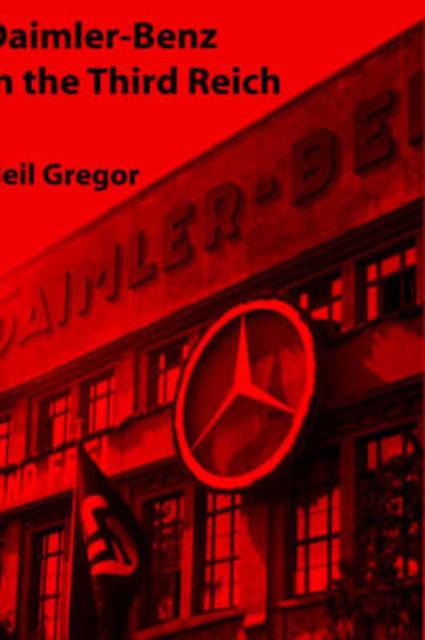
- Afhalen na 1 uur in een winkel met voorraad
- Gratis thuislevering in België vanaf € 30
- Ruim aanbod met 7 miljoen producten
- Afhalen na 1 uur in een winkel met voorraad
- Gratis thuislevering in België vanaf € 30
- Ruim aanbod met 7 miljoen producten
Zoeken
Omschrijving
What was the relationship between German big business and the Third Reich? To what extent did business leaders collaborate with the Nazis? This book examines the experience of the Daimler-Benz company--one of Germany's most important armament manufacturers and automobile makers--from its formation in 1926 through the end of World War II. Based on a substantial body of new material from formerly inaccessible East German archives and previously closed Mercedes-Benz AG records, the book reveals for the first time a close association between the car manufacturer and the Nazi system, from 1933 onwards. Neil Gregor traces the early history of the Daimler-Benz company and examines how opportunities offered by Nazi rearmament in the 1930s led to its rapid expansion and a surge in profits. Focusing mainly on the war years, Gregor demonstrates how the company succeeded in exploiting the demands of the war economy while situating its operations most advantageously for resumption of commercial activity in peacetime. Despite Allied bombing, says Gregor, Daimler-Benz AG emerged from the war in good shape--with a clear operating strategy, a largely intact inventory, and core production lines geared for the peacetime market. With its own interests and preservation as prime motives, the company acquiesced in the exploitation of forced labor, thereby actively intensifying the suffering of civilians, prisoners of war, and Jews and other victims of concentration camps. He concludes that the ability of Daimler-Benz to protect its interests during the war and to manage the transition to peace was predicated upon collusion in the racial barbarism of the Nazi regime.
Specificaties
Betrokkenen
- Auteur(s):
- Uitgeverij:
Inhoud
- Aantal bladzijden:
- 300
- Taal:
- Engels
Eigenschappen
- Productcode (EAN):
- 9780300072433
- Verschijningsdatum:
- 20/04/1998
- Uitvoering:
- Hardcover
- Formaat:
- Genaaid
- Afmetingen:
- 162 mm x 241 mm
- Gewicht:
- 635 g

Alleen bij Standaard Boekhandel
+ 83 punten op je klantenkaart van Standaard Boekhandel
Beoordelingen
We publiceren alleen reviews die voldoen aan de voorwaarden voor reviews. Bekijk onze voorwaarden voor reviews.











